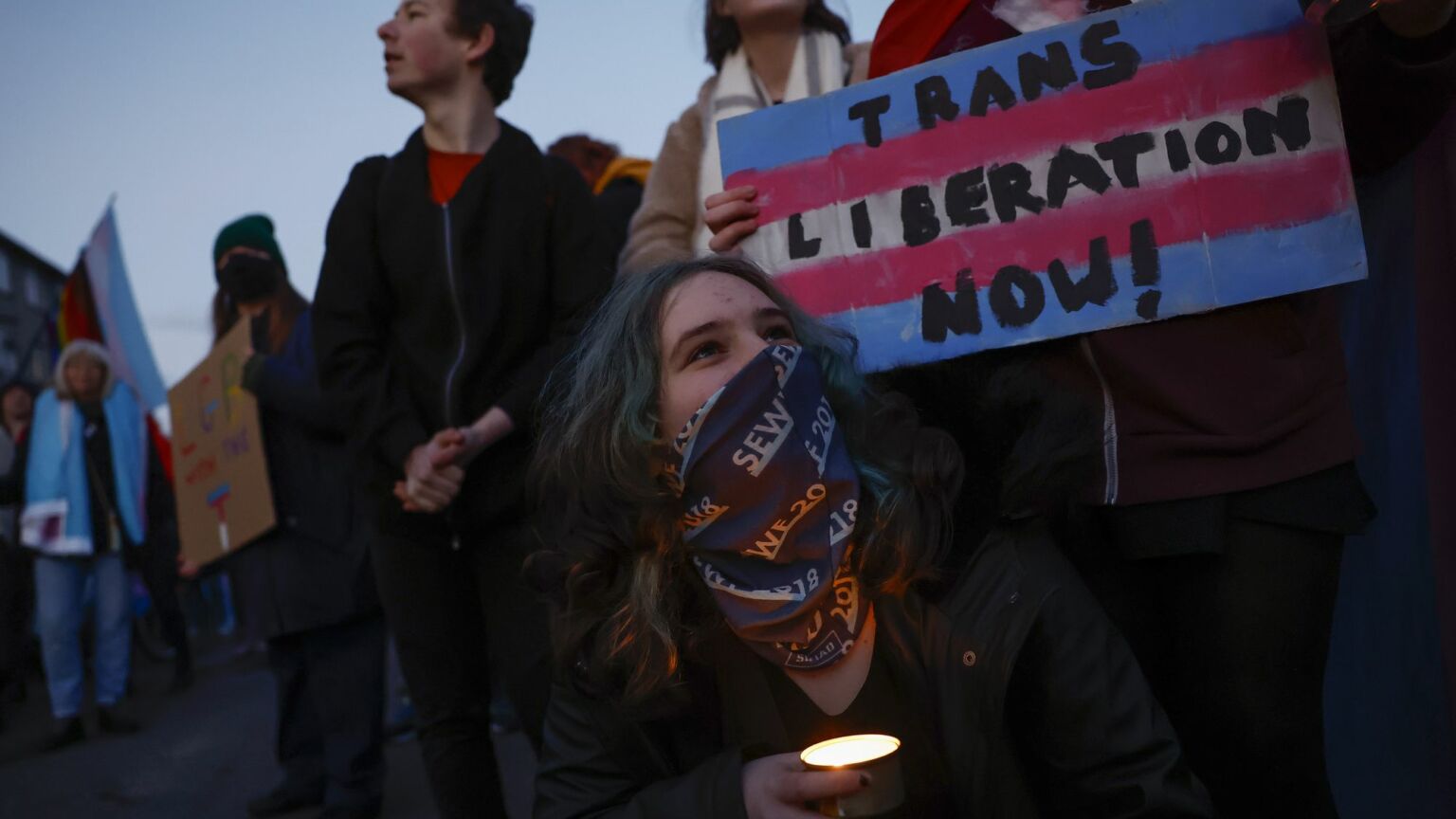Why did it take so long to ban puberty blockers?
The trans movement fooled too many into thinking that it was on the ‘right side’ of history.

Want to read spiked ad-free? Become a spiked supporter.
NHS England’s decision to ban the routine prescription of puberty blockers to children came as welcome news to many last week. Welcome, that is, for those who have campaigned for years against this awful practice. For too long, these drugs were handed out to mentally troubled youths, to confused young gay people caught up in vortices of social contagion and to children pressured into potentially life-ruining decisions by ideologically driven adults.
For this ban, we must thank Lucy Bannerman and Janice Turner of The Times, author Helen Joyce and the many other gender-critical feminists who campaigned tenaciously against the use of puberty blockers. But a troubling question remains: how on Earth was the practice allowed to continue for so long?
An intriguing answer comes from Helen Joyce herself. As she explains in a recent article for the Critic, the trick the radical trans movement played was to persuade people that according blanket rights to trans people was simply the next step in a narrative of liberation. The thinking among many has been that, ever since the Enlightenment, we have been on an emancipatory trajectory in the West. It began with religious toleration, then came the campaign for racial equality, moving on to women’s liberation and then, by the 1960s, gay liberation. With these goals achieved, the next step was surely liberation for the trans community. As Joyce explains: ‘During the past decade, the trans lobby has been stunningly successful in selling false analogies… [such as] that separate toilets for men and women are like racial segregation and that insisting people can change sex is “gay rights 2.0”.’
The insinuation made by radical trans activists is that if you deny the validity of someone’s preferred gender, you also belong to the oppressive hegemony of white, heterosexual males (and, more recently, mainstream feminists). Indeed, this is precisely the argument made by the godmother of trans, Judith Butler, in her latest book, Who’s Afraid of Gender?. Here she writes that critics of gender ideology seek ‘the restoration of a patriarchal dream-order where a father is a father; a sexed identity never changes; women, conceived as “born female at birth”, resume their natural and “moral” positions within the household; and white people hold uncontested racial supremacy.’ This is mendacious sophistry. It suggests that anyone questioning trans must be a racist homophobe.
The view that society is inexorably progressing towards liberation is perhaps best expressed by that juvenile and fraudulent slogan, ‘the right side of history’. The reality is that progress is never inevitable. This was clearly demonstrated by the two appalling world wars. And likewise, by the medical experiments of the Second World War, the eugenics programmes of the mid-20th century and the enthusiasm for lobotomies that was also a feature of that era. Let’s not also forget that 1970s France was host to an ultra-progressive cult that believed in legalising paedophilia. That, too, was born of a narrative of ever-extended liberation. In the end, it was certainly not on the ‘right side of history’.
The recent craze for mutilating children will most likely one day be put in that same category of warped, weird thinking. As will Butler’s belief, that both gender and biological sex are socially constructed.
The trans movement’s treatment of children has done nothing to advance freedom or equality. It is primarily a tale of disfigurement, experimentation and exploitation. Hopefully, this dark chapter can soon be consigned to the past.
Diversity another day
Some genuinely astonishing news emerged from the world of cinema this week. It is rumoured that Eon, maker of the James Bond films, is in talks to replace current Bond actor Daniel Craig with… another white, heterosexual male. According to the Sun, the new 007 is set to be played by 33-year-old Aaron Taylor-Johnson, star of the superhero film Kick-Ass. As one source told the newspaper on Monday: ‘As far as Eon is concerned, Aaron is going to sign his contract in the coming days… The formal offer is on the table and they are waiting to hear back.’
Taylor-Johnson has since denied having any interest in the role. In fact, he told Rolling Stone UK that he has no desire to become part of the ‘pop-culture, studio-film’ machine. Really, this is the least interesting part of the story. What’s remarkable is that the makers of Bond have sought someone from this thoroughly unfashionable demographic in the first place.
As Google’s hilarious yet grotesque Gemini AI fiasco recently revealed, to be white today is automatically grounds for opprobrium. ‘Whiteness’ is now an original sin. White males in particular aren’t much welcome on TV or cinema these days – as shown by the two most recent incarnations of Doctor Who, first as a woman and then as a black man. Although, white women haven’t exactly been spared, either. In last year’s cinematic remake of The Little Mermaid, the titular mermaid was made black. Even Anne Boleyn was notoriously cast as a black woman for a Channel 5 drama in 2021. And Disney is now notorious for valuing diversity over quality.
And so it has been with the Bond films. The character of M in James Bond was played by a woman from 1995 to 2012. In GoldenEye, Judi Dench infamously upbraids our secret agent for being a ‘sexist, misogynist dinosaur’. The last Bond film, No Time to Die, featured the kind of hyper-tokenistic casting that we are so accustomed to on our screens.
This is why so many of us expected the new 007 to embrace modern wokery. Yet it seems that producers at Eon were so keen to keep to the traditional image of Bond that they even reportedly considered casting a different white man, Cillian Murphy, before he decided that he would be too old for the part.
It’s far too early to say this is a sign of a return to sanity. But it’s a start.
Purple-haired blues
According to a study published this week, people who are ‘woke’ are more likely to suffer from depression and anxiety.
This makes sense entirely. This Finnish study found that right-on folk are more likely to feel guilty for their supposed privilege. And no doubt they are deeply fretful about their desire to be liked. They are desperate to be regarded by their peers as compassionate and part of the right tribe.
Being a Good Person must be hard work. Such is the terrible burden of misplaced liberal guilt.
Patrick West is a spiked columnist. His latest book, Get Over Yourself: Nietzsche For Our Times, is published by Societas.
Picture by: Getty.
To enquire about republishing spiked’s content, a right to reply or to request a correction, please contact the managing editor, Viv Regan.










Comments
Want to join the conversation?
Only spiked supporters and patrons, who donate regularly to us, can comment on our articles.